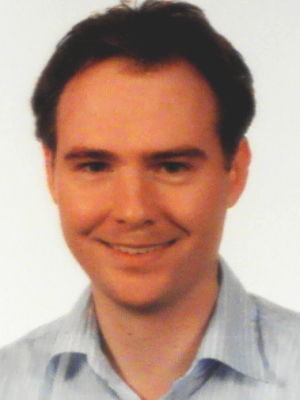Dr. Sebastien Wielgoss

Dr. Sebastien Wielgoss
Lecturer at the Department of Environmental Systems Science
Additional information
Research area
1.) Phylogenomics with social myxobacteria
Bacteria are the most abundant life forms on Earth: there are more bacterial cells on our planet than there are stars in the visible universe. However, at the same time, bacteria are also microscopically small and difficult to reliably distinguish based on cell morphology. As thus they are very difficult to directly observe and study in natural environments. However, with help of recent innovations in highthroughput sequencing it has become feasible to address questions on how different bacterial species are distributed in space and time, and which evolutionary forces drive this distribution.
For my research, I focus on the highly fascinating social bacterium, Myxococcus xanthus. In particular, I assess the genetic diversity and phylogenetic relationship among individuals within and across kin group populations of M. xanthus at the level of the whole genome, and link these data with social phenotypic diversity across the whole microbial landscape spanning metric scales as disparate as 10-6 m (fruiting bodies) up to 107 m (continents). For this I combine phylogenetics with population genetics methods to better understand the mechanisms that shape genetic and social variance in cooperative myxobacteria at different spatial distances in nature.
2.) Mutation rate dynamics and the fate of mutators
The quantification of spontaneous mutation rates is crucial for a mechanistic understanding of the evolutionary process. According to theory, mutation rates should be minimized for well-adapted populations living in stable environments, whereas hypermutators may evolve if conditions change. However, the long-term fate of hypermutators is unknown.
For my research I rely on experimental evolution settings with bacteria (mainly Escherichia coli) to reliably estimate mutation rates and better understand their evolutionary dynamcis over time. For this I study monocultures, as well as co-evolution cultures comprising bacteria and their viral parasites.
Education
- 08/2004 – 06/2009 PhD in Biology, Universität Konstanz (D)
- 10/2000 – 06/2004 Master's degree in Agrobiology, Universität Hohenheim (D)
- 09/1999 – 09/2000 Undergraduate degree in Agricultural Sciences, TU München (D)
Research Experience and Scientific Mobility
- since 11/2019 Senior Researcher, ETH Zürich(CH)
- 04/2014 – 10/2019 Research Assistant, ETH Zürich (CH)
- 03/2012 – 03/2014 Postdoctoral fellow with Prof. Gregroy Velicer, ETH Zürich (CH)
- 05/2009 – 02/2012 Postdoctoral fellow (CNRS) with Prof. Dominique Schneider, UJF Grenoble (F)
- 08/2004 – 06/2009 PhD student with Prof. Axel Meyer, Universität Konstanz (D)
- 08/2003 – 06/2004 Master student with Prof. Nicolaus von Wirén, Universität Hohenheim (D)
Personal fellowships and grants
- 04/2013 – 03/2015 Marie Curie Postdoctoral Fellowship (by EU-FP7)
- 01/2009 – 02/2009 PhD fellowship (by Universität Konstanz)
- 04/2007 – 12/2008 PhD fellowship (by Landesgraduiertenförderung Baden-Württemberg)
- 08/2003 – 11/2003 Master student fellowship by the DAAD
For further information: My personal website
vertical_align_bottomCV PDF
Additional information
Institutional responsibilities (IBZ, USYS)
- Study advisor for Environmental Biology (Bachelor Environmental Sciences)
- Study coordinator for Ecology & Evolution (Master Environmental Sciences)
- Member of the Teaching Comission (D-USYS)
- Member of the Institute's Council (IBZ)